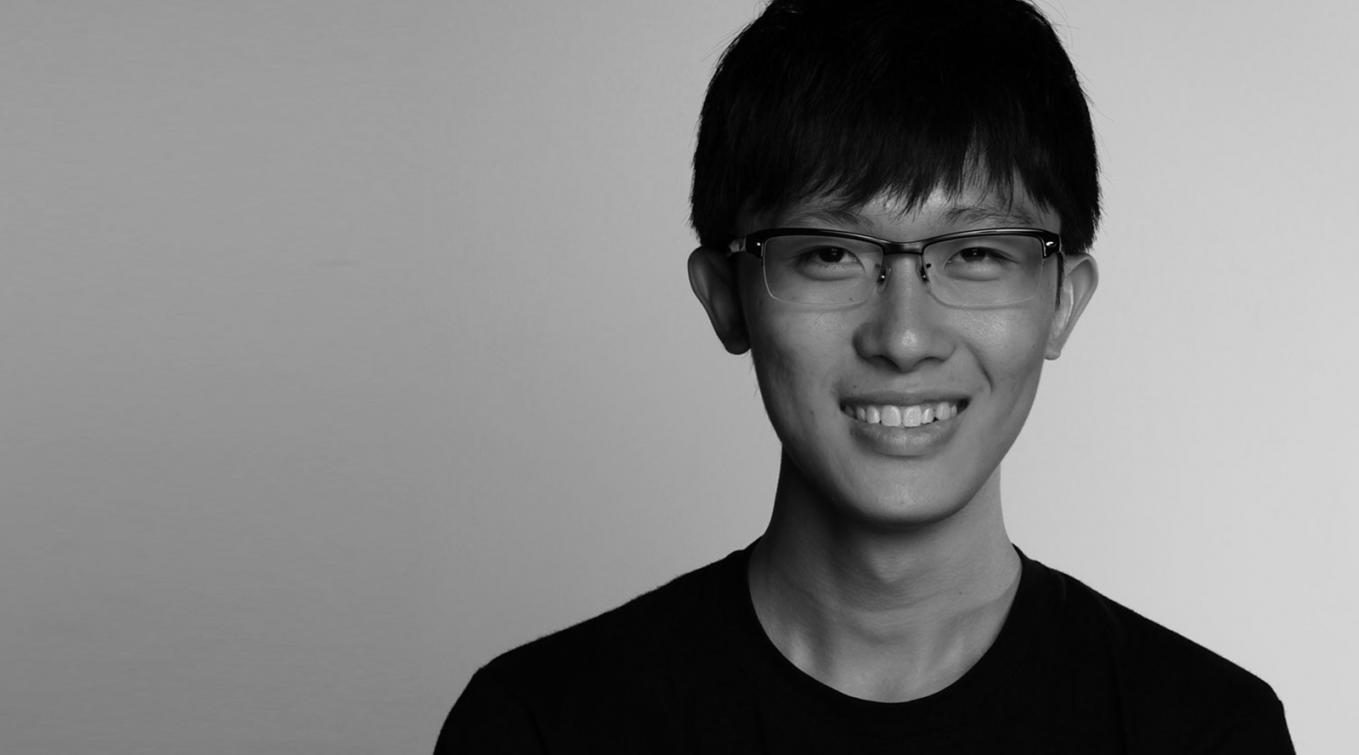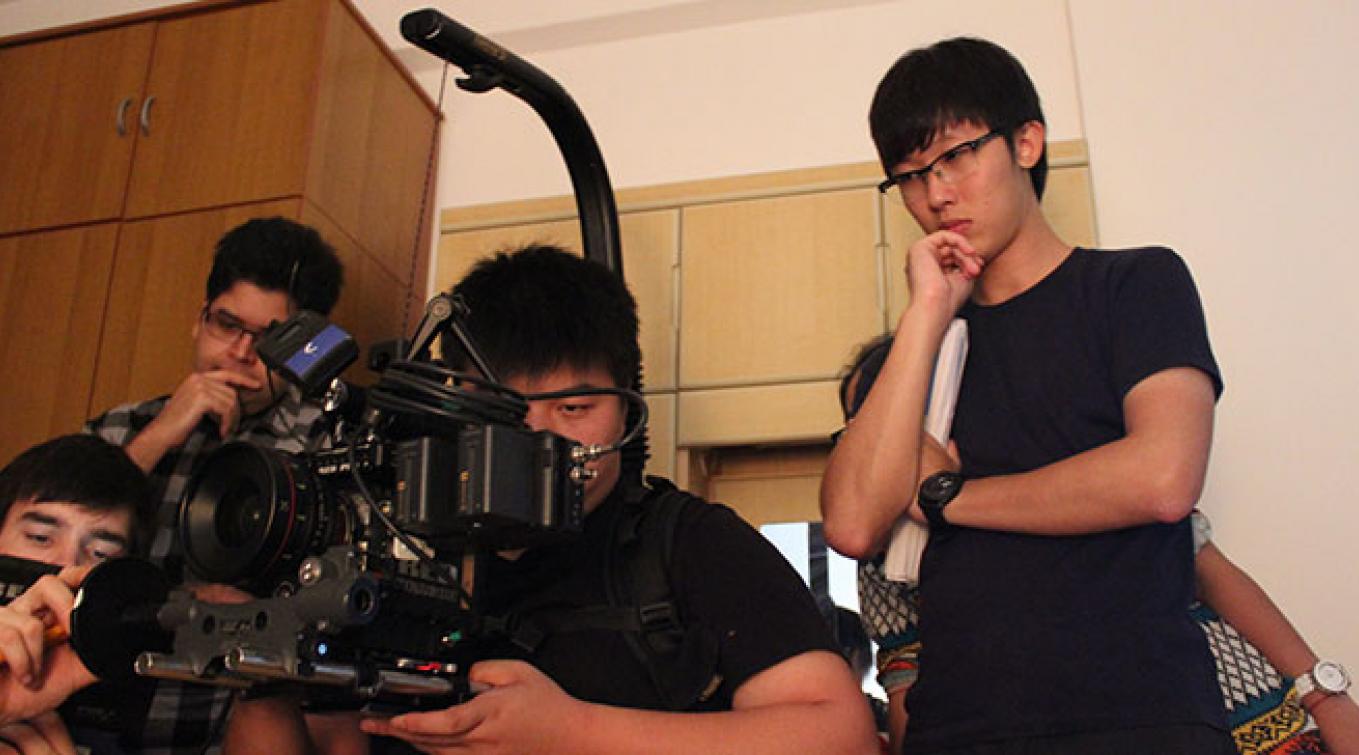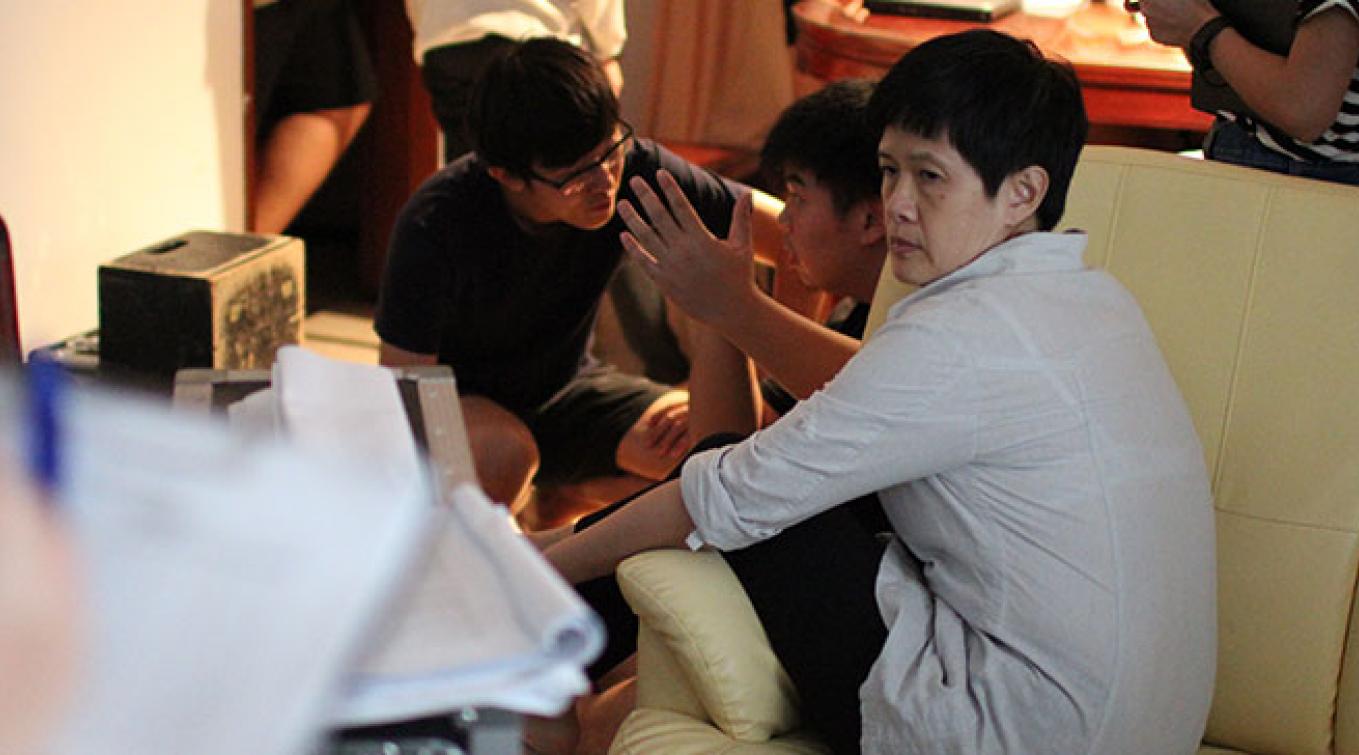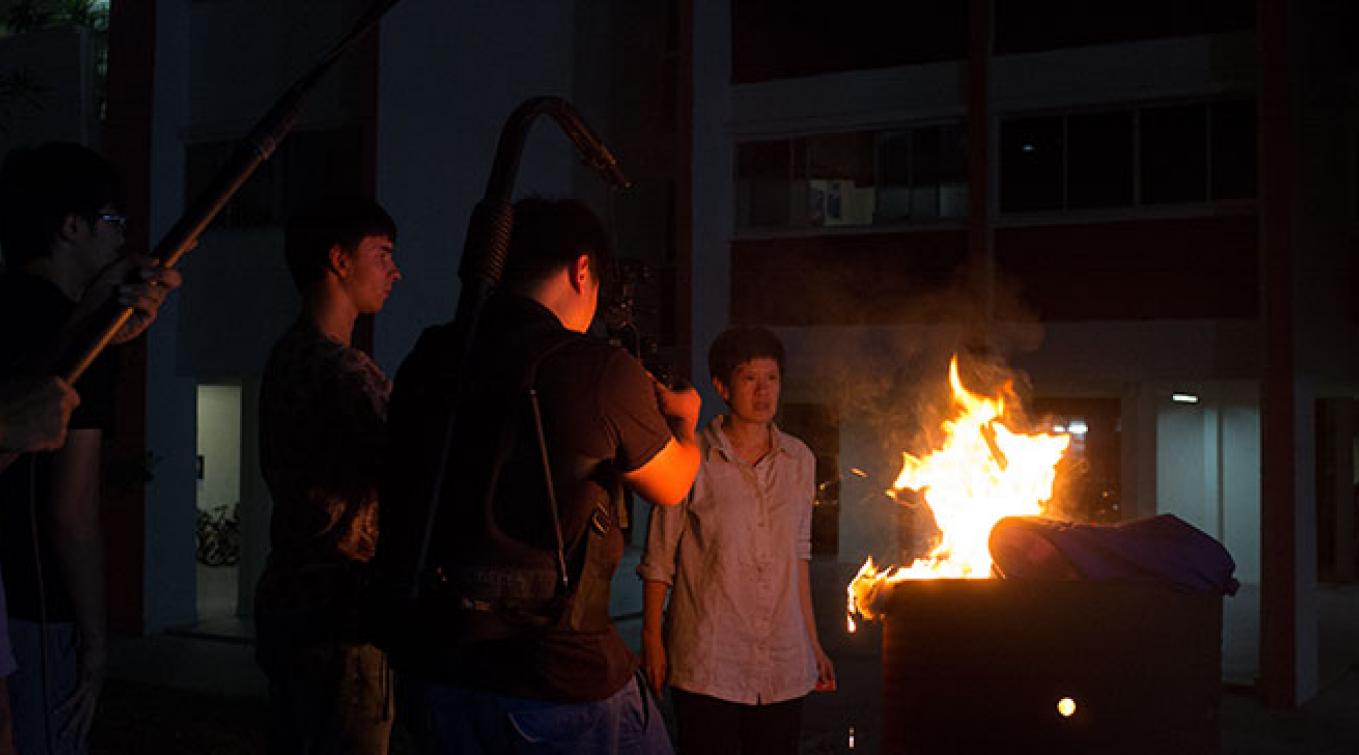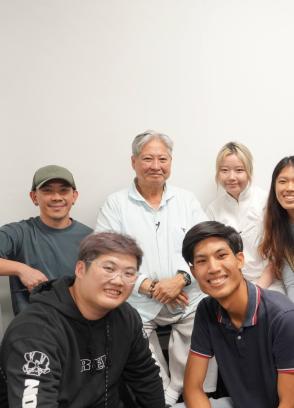02 May 2015
Cheng Chai Hong, 25, a film student at Puttnam School of Film and Animation, LASALLE managed to impress the socks off some very important people who visited LASALLE for a recent event, including Senior Minister of State for Education, Ms Indranee Rajah!
Get to know him better and find out how his journey to discover his calling gave him the courage to determine the course of his life and more importantly, the state of the world he lives in through filmmaking.
Tell us more about your decision to enrol in LASALLE. What led you to apply to the school? What attracted you to it?
I studied journalism and then switched to advertising as part of my Mass Communications studies at Ngee Ann Polytechnic. After graduation, I joined the advertising industry but in the course of my National Service (NS), I understood that advertising was not my cup of tea. It was a lot of ‘getting things done’ whereas what I wanted was to do something more creative to push me even further. I wanted to tell stories to people, create ideas that can be transmitted from person to person, to make them feel and think.
During NS, I had time to reflect and recall what I liked to do as a hobby — video-making — from video montages for friends and family, to recordings for my Co-Curricular Activity (CCA) in Ngee Ann Polytechnic. I saw that this was quite a logical area to go into if I wished to tell stories and that was what I truly wanted to do.
In my second year of NS, I did a search on where I could study film in Singapore and also went to see the graduation shows for the film programmes I had researched. At one graduation show, it was very much about a mood, of film as art, as visual art… whereas at LASALLE, it was all stories. They [the works] all had something to say.
When I thought about the whole idea of storytelling and crafting narratives, LASALLE’s film programme appealed to me. So I decided on LASALLE because of what I saw.
In February 2015, film student Cheng Chai Hong commenced the filming for his thesis work titled Harbour, which features veteran actress Karen Tan in a lead role.
What opportunities have you enjoyed while studying at LASALLE (e.g. industry projects, attachments, visiting artist talks etc.)?
Artists’ visits were held weekly at PSoF. From production designers, directors, and exhibitors to film distributors – they all shared industry insights and their working experiences. We get a lot of exposure that way, and it helps open up the realities of the film industry.
What I enjoyed most was their personal anecdotes and behind-the-scenes stories. They shared their own insecurities and their thoughts that resonated with me. I realised that these people shared the same challenges, and if they could do it, why not me?
I also enjoyed the internships that we sourced for ourselves independently. Through the artist talks, we were able to network with the speakers and this created possibilities and opportunities.
Local director and also PSoF alumnus Boo Junfeng was an artist-in-residence. He directed a film for LASALLE’s fashion programme as part of the graduation showcase and I worked as the line producer. Being the ‘boss on set’, I had to make sure the director had everything he needed to produce the film. It was an overwhelming and ‘scary as hell’ experience – I was thrown into the deep end but after that, I felt that nothing could faze me.
What do you look forward to in your future career? What sort of roles do you hope to take up in the film industry?
My interest is and has always been writing, and this passion remained with me during the time when I was doing my early journalism studies, and stayed with me in my advertising work. Primarily as a writer, I am thinking of working freelance for production houses and in my free time, to make short films. I think that is what director Anthony Chen (llo llo) did. The short films act like a calling card as well as a way to hone the craft. Once the industry deems that I am ready, I will make my first feature film, as a writer and director.
(From L to R) An indoor scene is carefully framed and studied for continuity by the film team consisting of 1st camera assistant Motiejus Barauskas, editor Navil Aman, director of photography Lee How Chuen, production designer Li Lexi, and director Cheng Chai Hong.
How is LASALLE and your course preparing you to achieve your career goals?
The main thrust is through the faculty, who are all very well versed, all very professional, and they are all exceptional in their own fields. From Gisli Snaer, our Head of School, to Hideho Urata, Lecturer of Cinematography – they know their craft so well that they can both prepare me in techniques and in my creative development. During my course of study, I knew I was not prepared to be a full-fledged writer or director but my lecturers helped me to realise my talent and prepared me for the long journey ahead. Whenever it’s required, we get encouragement or honest feedback and all that does wonders to make us better filmmakers.
It’s a very involved culture here in LASALLE. We are able to talk to the lecturers about anything from films, our future plans, sensibilities to work in a specific genre, whether our work was [rubbish], to our potential to go somewhere. Praises like “good job!” are hard-won and that keeps us on our toes, and keeps us wanting to do more for our craft.
Tell us more about student life at LASALLE. What do you enjoy most about it? What is the culture like?
It really just revolves around my work in making films. I do not really have time for anything else! What I get to experience is collaborating with students from other disciplines. I worked with music students to score our films and acting students to act in our films. Honestly, work is my life — making films, talking about films, and that is what I came [to LASALLE] to do ultimately.
Director of photography How Chuen discusses the impending shots with director Chai Hong as actress Karen waits in quiet contemplation.
Fill us in with details about the methods of instruction at LASALLE. How are classes structured? How do your instructors ensure that you learn what you need to make it in the creative industry?
It all boils down to the constant feedback I received. Honest, no hint of malice, and always objective. I get a clear understanding that what I create in film is art and that with all art, there are always many perspectives to be considered. There is always potential for my craft to grow. My lecturers know how to judge my works for what they are. A work created in the first year, compared to an industry piece, could be utter rubbish; but the lecturers are able to discern what is worth celebrating.
In actual methods of instruction, it varies from module to module but is mostly practice-driven. That is how film students learn – just by making films, much like in the real world.
Were your parents initially resistant to your choice to study film and how did you persuade them to go with your decision?
My mum gave me an ultimatum of 10 years to succeed, after which I should do something else like advertising. I agreed but I often remind her of the fact that as with all art mediums, you never know when success happens. You just have to slave away at it. I needed to know for myself if I had a flair or knack for filmmaking. Now I see that there has to be more than that. If I keep going, it really needs to be just a dream I constantly chase – the next story I want to tell, the next emotion, the next message I want to give people. And that’s a dream. For me, that’s different from success. Money, creature comforts, and material possessions help you live and carry on but in order to properly live my life, I really feel that I have to find something bigger, a dream to work towards. It has to be the desire to tell the next story so it just keeps going. Success is not the main goal.
The team captures an intense night scene with Karen confronting a fire as she grapples with her character’s inner conflict.
What will you say to parents who feel that their children should not pursue a course of studies in the arts?
Let them chase their dreams. If they have one, let them chase it. Skip the realism. Life outside will bring them that. If your children find a dream they find worthwhile to work towards, encourage them, whether it be entrepreneurship, becoming a cabinet minister, making films or crafting poetry. Then if they fail, they will be living life on their own merits and choices. I think the worst thing in life is to fail and not know why, simply because the decision was not even yours in the first place.
Is there anything you wish to say to young people or anyone considering a career in the arts?
With the recent passing of Mr Lee Kuan Yew, I wish to say that if there is anything we want changed, try to change it, rather than complaining about the world we live in. If you want to make a world you want to live in, go forward and do something to work towards that. That is how Mr Lee changed Singapore. He simply decided things were not good enough and he went forward with a plan to change it. It sounds simple even though it was not. And that is what we all should be doing, whether it is a law that we feel is not humane, or if you find the local film industry ailing, go forward to change it. Take up a course to equip yourself, to make the films that you want to see. As long as you have a dream, set your goal and go forward to make it happen.

